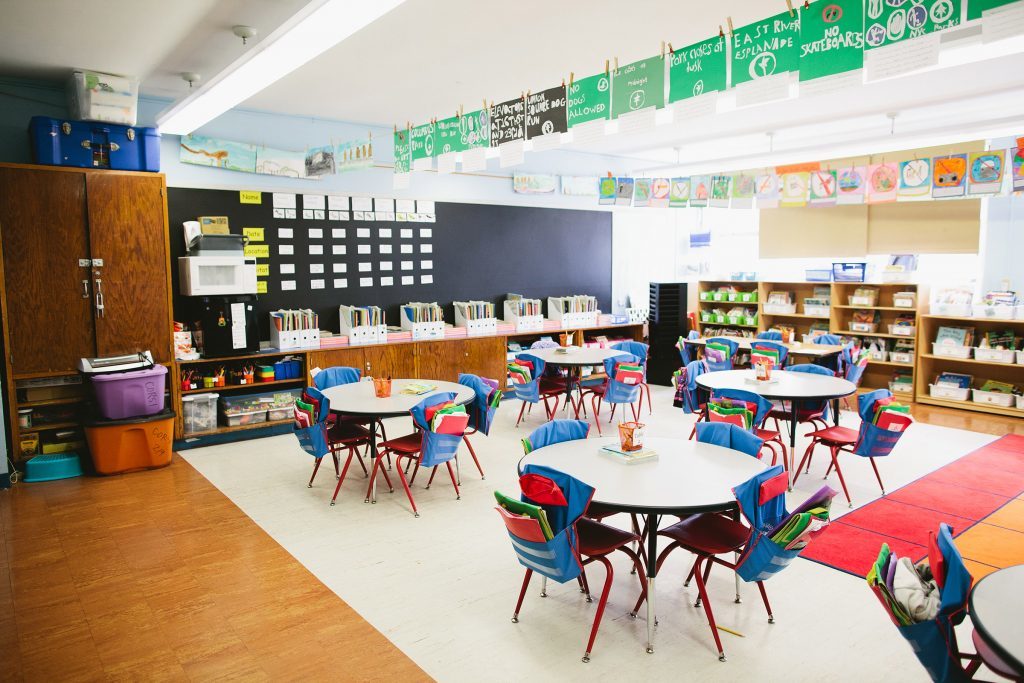
It is essential for parents to communicate with their child’s school if they are coping with a cancer diagnosis in the family. Kids spend a lot of time in the classroom with their teachers and classmates. It is an important experience for them. If they are struggling with emotions, thoughts and feelings about cancer, it can impact their classroom performance, academic progress, behavior and the development of friendships and support networks in the classroom and in school activities.
So, What do you tell the school? When do you tell the school? Who do you talk to?
You need to be comfortable with the information you have about the diagnosis and treatment plan. If you don’t have your head wrapped around what is happening, how can you share this with your children—let alone their school? Get informed from credible sources about the cancer diagnosis, treatment plan and potential side effects. Prepare yourself for questions. Ask for help. Healthcare providers, social workers, child-life specialists and therapists can help parents get a grip on what is happening and plan for disclosure to their children and eventually the school.
Also, this may need to happen multiple times over the course of treatment, or if cancer recurs. It never gets easier, but your skill set and resilience as a parent will continue to grow throughout this process.
Talk with your child(ren) about involving the school.
Check in with your child(ren) about their comfort level with school staff and classmates knowing about their experience with cancer. Reassure them that you are talking with folks at school to help them – not hurt them. They spend a lot of time with their teachers and classmates. Teachers and classmates may pick up on subtle changes in mood, behavior and academic performance that may indicate they are struggling with other things happening in the family. They are a window into your child’s life outside of the home and can often identify trouble is brewing early on.
Decide who “needs to know”- perhaps the principal, teacher(s), school counselors – and then talk to them.
Ask for a team meeting without your child present to explain what is happening, what the child knows and how the school staff can be helpful.
Make a plan for who will talk to other children in the classroom (or if they will) and what they need to know. Rumors in schools can be vicious. Involve the teacher(s) in asking students what they know, what they have heard and then be available to help the teachers and students have a basic, truthful understanding of what is happening, who they can go to for more information, and how (or if) they will get updates about the situation.
Prepare your child for questions from others
Let them know who you have talked to, how much they know, and how to ask for help from school staff. It might be helpful to debrief with your children on a regular basis – just to check in about how things are going at school, if friends had questions or if they felt they were balancing cancer in the family with their school work and activities. Open, regular communication is key.
Children are very intuitive. They pick up on clues that something isn’t right. Keeping information from them may cause fear, anxiety, and worry. Reassure your children that it isn’t their fault, that you want to give them space to understand what is happening and to utilize other people to help them cope along the way. Remember that while cancer in the family may be your priority, it may not be your child’s priority. They may seem dismissive or just want to know who is driving them to their next playdate. This is ok and appropriate for most younger children to want to move on to a space that brings the comfort.
Try to keep normal school routines as much as you can
School should be a place your child can go and feel “normal,” especially when things at home at not normal. Have them ride the bus and participate in their after school activities if that is what they did before cancer entered their world. Don’t be afraid to ask other families for help with carpooling, or maybe providing a meal for your child after soccer practice. Allow them to be children.
This can be a monumental task for parents. But with a little preparation, parents can provide their children, their classmates and their school supports with age appropriate information to help everyone cope with the cancer crisis at hand.
Resources for More Information
OncoLink: Talking to Your Children About Your Cancer Diagnosis
ASCO: How a Child Understands Cancer
Christina is a clinical oncology social worker who joined the OncoLink team in 2014. Christina blogs about resources available to the cancer community, as well as general information about coping with cancer practically, emotionally, and spiritually. Christina is also an instructor at the Penn School of Social Policy and Practice. In her spare time, she loves to knit and volunteer with her therapy dogs, Linus and Huckleberry. She also loves to travel, cook and is an avid Philly sports fan.
Thanks for providing information on cancer treatment. This information helps children to know about cancer treatment.